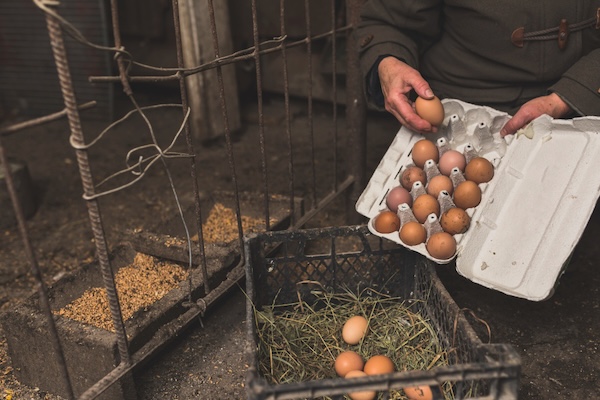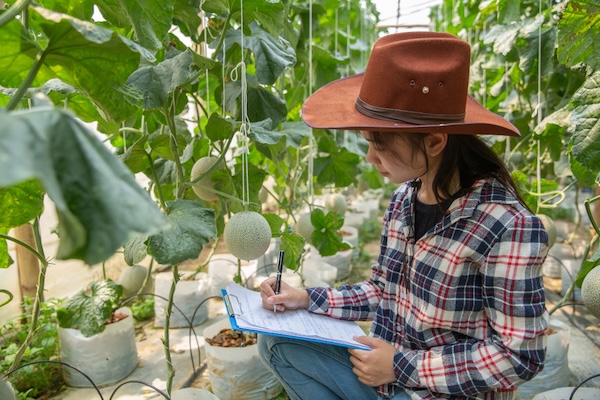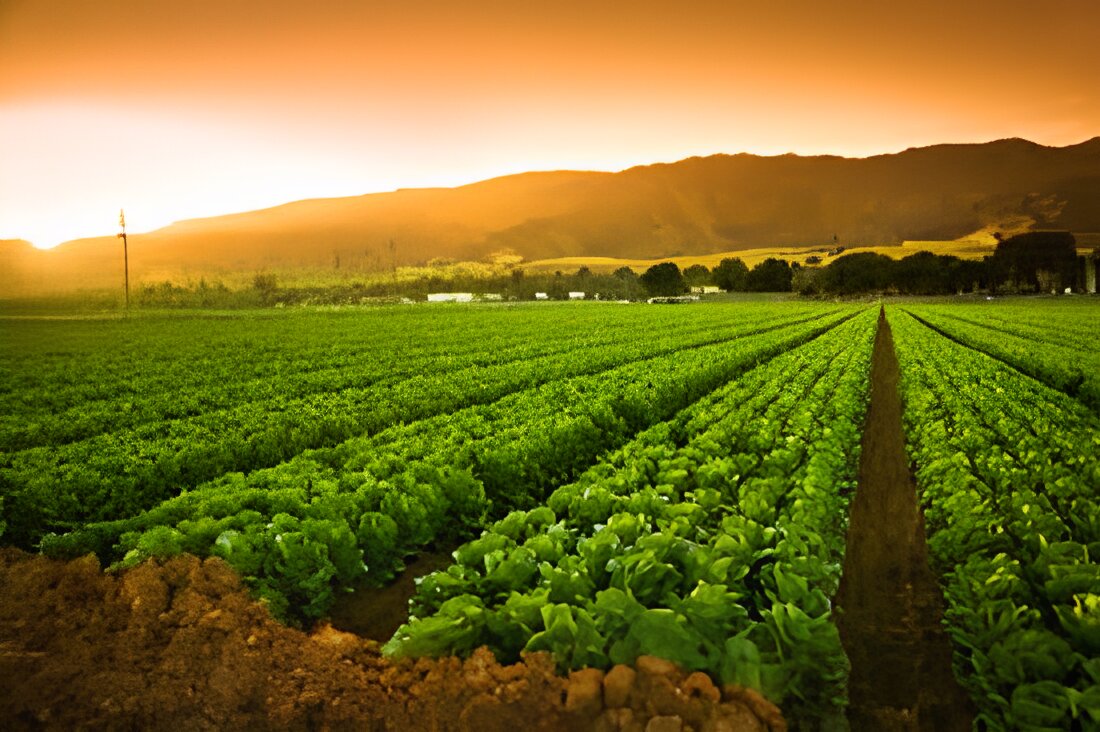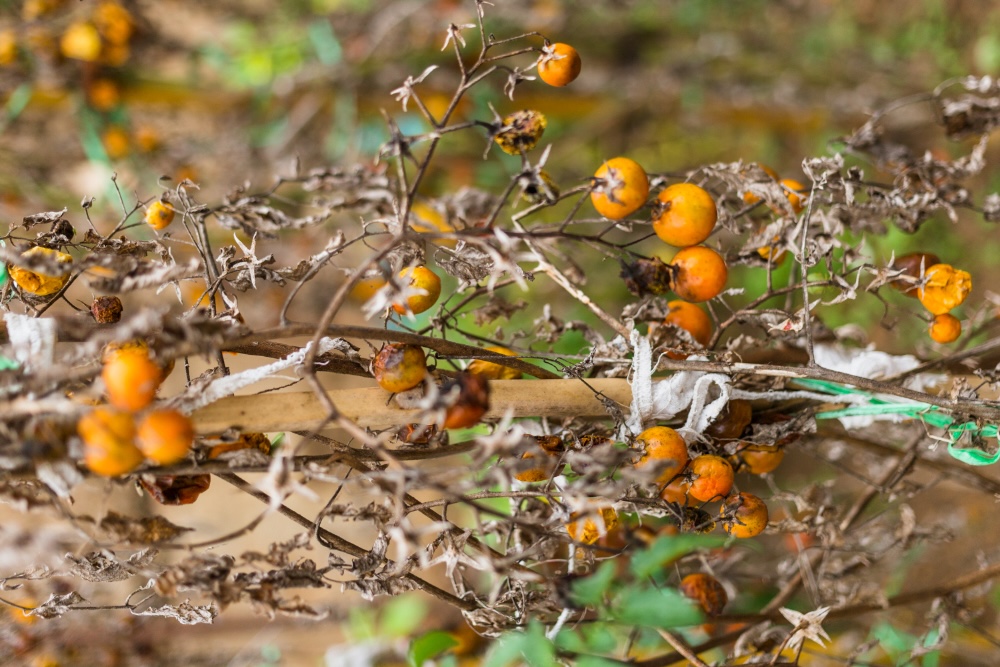Quality Control Service and Product Inspection for Agricultural Products
-
Quality control in agriculture ensures consistent product quality, compliance with regulations, and consumer safety. It enhances marketability, customer satisfaction, and brand reputation, leading to increased sales and profitability for manufacturers and importers.
Implementing quality control measures optimizes supply chain efficiency, minimizes risks, and prevents product recalls. It also enables importers to source high-quality agricultural products that meet their requirements, ensuring customer satisfaction and regulatory compliance.
Worldwide Quality Control is committed to providing unparalleled excellence in quality control services exclusively crafted for the agriculture industry.
-

Backed by our extensive industry experience and expertise, we are the trusted partner for manufacturers and importers seeking reliable quality control solutions.
Through meticulous inspections and unwavering adherence to international standards, we safeguard your brand reputation, surpass customer expectations, and secure success in the highly competitive agriculture market.
Usual Norms and Standard related to Agricultural Products
-

-
- Global Good Agricultural Practices (GLOBALG.A.P.)
- Organic Certification
- Fairtrade Certification
- UTZ Certification
- Non-GMO Project Verified
- Protected Designation of Origin (PDO) and Protected Geographical Indication (PGI)
- Kosher Certification
- Global Organic Textile Standard (GOTS)
- Demeter Biodynamic Certification
In the agriculture industry, maintaining compliance with established norms and standards is paramount for manufacturers, importers, and suppliers.
At WQC, we understand the vital role that adherence to these standards plays in ensuring superior product quality and meeting regulatory requirements.
Through our extensive expertise and unwavering commitment, we equip our clients with the tools they need to cultivate unwavering customer trust and gain a distinct competitive advantage in the dynamic agricultural market.
Our quality consultant can also help and assist you in establishing custom checklists tailor made for your product.
Common Agricultural Products subject to Quality Control and Quality Inspection
The agriculture industry demonstrates an unwavering dedication to maintaining quality and safety standards through the implementation of rigorous quality control and inspection measures.
These measures encompass a diverse array of products and leave no stone unturned. A wide range of critical aspects undergo meticulous examination, covering but not limited to:
-
- Grains (wheat, rice, corn, barley, oats)
- Oil seeds (soybeans, sunflower seeds, canola seeds)
- Poultry and eggs
- Sugarcane and sugar products
- Coffee and tea
- Fruits (apples, oranges, bananas, strawberries, grapes)
- Livestock (cattle, poultry, pigs, sheep, goats)
- Fish and seafood
- Herbs and spices
- Cocoa and chocolate
- Silk and silk products
-
- Vegetables (carrots, tomatoes, potatoes, lettuce, broccoli)
- Dairy products (milk, cheese, butter, yogurt)
- Honey and other bee products
- Flowers and ornamental plants
- Cotton and textiles
- Legumes (beans, lentils, chickpeas, peas)
- Nuts (almonds, walnuts, cashews, pistachios)
- Medicinal plants and herbs
- Timber and wood products
- Essential oils
Within our organisation, we are fully committed to providing a comprehensive suite of quality control and inspection procedures that exemplify excellence at every step of the manufacturing process.
Through meticulous evaluations of raw materials and rigorous examinations of finished products, we demonstrate an unwavering commitment to upholding critical quality standards and specifications. Our focus on safety and reliability serves as the cornerstone of our approach, ensuring the consistent delivery of exceptional products.
By conducting diligent inspections and thorough testing throughout the production cycle, we proactively identify and address potential issues, guaranteeing the provision of outstanding, top-tier products.
Our unwavering dedication to upholding the highest quality standards sets us apart and instills confidence in our clients, assuring them that their products not only meet but exceed expectations.
Our quality consultant can also help and assist you in establishing custom checklists tailor made for your product.
How we can help you with Agricultural Products Quality Control
We are operating worldwide to help importers, buyers, traders, retailers and startups with quality control, quality inspection and factory audit operations.
You have no time to travel and go on-site to check your goods quality or your vendor reliability? We are here to serve you as your decentralised Quality Control business unit capable of representing you on-site.
Available within 48 hours with a fixed on-demand cost.
-
Quality Inspector skills required to perform inspection of Agricultural Product
- Agricultural Knowledge
- Quality Standards
- Sampling and Testing
- Ethical Conduct
- Product Knowledge
- Pest and Disease Identification
- Equipment Proficiency
- Documentation and Reporting
- Environmental Awareness
- Understanding of Regulatory Compliance
-

Our quality inspectors located worldwide can help you with quality control related to agricultural products.
The extraordinary team of specialised Quality Inspectors at our organisation exemplifies our unwavering commitment to excellence in agricultural inspections.
By choosing our comprehensive inspection services, manufacturers and importers can confidently deliver agricultural products that surpass the highest thresholds of quality and dependability.
Place your trust in our dedicated team of on-ground Quality Inspectors to deliver efficient and tailored solutions that precisely meet the unique demands of the agriculture industry.
Our quality consultant can also help and assist you in establishing custom checklists tailor made for your product.
Most common type of defects and non conformance related to Agricultural Products
Physical Defects
These defects involve visible or tangible issues with the agricultural product, such as bruises, cuts, discoloration, deformities, or physical damage. Physical defects can occur during harvesting, handling, transportation, or storage.
Contamination
Contamination defects can include the presence of foreign matter, such as dirt, rocks, insects, or other substances that are not supposed to be present in the product. Contamination can occur due to inadequate cleaning, improper storage, or exposure to environmental factors.
Disease and Pest Damage
Agricultural products are susceptible to diseases caused by bacteria, fungi, viruses, or pests. Defects related to disease and pest damage can include visible symptoms like rot, mold, wilting, discoloration, or insect infestation. These defects can negatively impact the quality and marketability of the product.
Maturity or Ripeness Issues
In some cases, agricultural products may exhibit defects related to maturity or ripeness. This can include premature harvesting, overripeness, underripeness, or inconsistent ripening. Such defects can affect the taste, texture, and overall quality of the product.
Size and Shape Deviations
Agricultural products often have specific size and shape requirements. Defects can occur when products deviate from these standards, such as being too small, too large, misshapen, or unevenly sized. Size and shape defects can impact the presentation and marketability of the product.
Chemical Residue
Chemical residue defects involve the presence of harmful substances, such as pesticides, herbicides, or chemical fertilizers, beyond permissible levels. Excessive chemical residues can pose health risks and raise concerns about product safety and compliance with regulations.
Post-Harvest Losses
Defects can also arise from post-harvest losses, such as improper handling, inadequate storage conditions, or insufficient preservation methods. Post-harvest defects can lead to spoilage, reduced shelf life, or deterioration of the product’s sensory attributes.
Texture and Consistency Issues
Some agricultural products are expected to have specific texture or consistency attributes. Defects in this category can include excessive softness, sponginess, fibrousness, or graininess, which can affect the overall eating experience and quality perception.
Off-Flavors and Odors
Agricultural products can develop off-flavors or odors due to various factors such as improper storage conditions, microbial growth, chemical reactions, or contamination. These defects can render the product unappealing or unsuitable for consumption.
Nutritional Deficiencies
Defects related to nutritional deficiencies occur when agricultural products lack essential nutrients or fail to meet specified nutritional standards. This can be a concern in crops where nutrient content is critical, such as fruits, vegetables, or grains.
Microbiological Contamination
Agricultural products can be susceptible to microbiological contamination, including the presence of harmful bacteria, fungi, or parasites. These defects can lead to foodborne illnesses or spoilage.
Shelf Life Limitations
Some agricultural products have limited shelf life, and defects can occur when the product exceeds its optimal freshness or deteriorates due to inadequate preservation methods, such as insufficient temperature control or improper packaging.
Moisture Content
Defects related to moisture content can arise when agricultural products have excessive moisture or inadequate moisture levels, leading to spoilage, mold growth, or loss of texture.
Foreign Seed Presence
In certain agricultural products, the presence of foreign seeds can be considered a defect, especially if they can compromise the quality or purity of the final product.
Our quality consultant can also help and assist you in establishing custom checklists tailor made for your product.
Performing Factory Audit related to Agricultural Products
Performing a Factory Audit or a Vendor Assessment before starting an engaging fund to buy goods related to agriculture can be a good strategy to avoid buying improper goods.
Buying from reliable, reputable and properly business minded vendors can prevent you experiencing disappointments when receiving your goods.
Leverage our full sets of Vendor Audit Services to secure your import and business when procuring agricultural products.
-

-
Out of quality assurance related, you may also want to check your vendor against other standards such as:
- ISO 22000
- HACCP (Hazard Analysis and Critical Control Points)
- SMETA
- BSCI
- SA8000
- Rainforest Alliance Certification
- ISO 14001
- Global Food Safety Initiative (GFSI) Certifications
- Fairtrade Factory Certification
- RSPO (Roundtable on Sustainable Palm Oil) Certification
- Global GAP Integrated Farm Assurance (IFA) Certification
Quality Check Service related to Agricultural Product
When our quality inspector and quality controller inspect and check products related to agriculture, they usually perform the following checking:
-
- Pesticide and Residue Testing
- Microbiological Testing
- Nutritional Analysis
- Allergen Testing
- Genetically modified organism (GMO) Testing
- Physical Characteristics Testing
- Shelf Life Testing
- Foreign Matter Identification
- Adulteration and Authenticity Testing
-
- Sensory Evaluation
- Heavy Metal Testing
- Mycotoxin Testing
- Moisture Content Analysis
- Fertilizer and Nutrient Analysis
- Water Quality Testing
- Seed Testing
- Environmental Monitoring
Our quality consultant can also help and assist you in establishing custom checklists tailor made for your product.
Countries which export Agricultural Products
Related Blog Articles
GET READY TO SECURE YOUR SUPPLY CHAIN
Get valuable advices, tips, recommendations from our quality management experts and inspection specialists
CONTACT US NOW ! Feel the form below.










